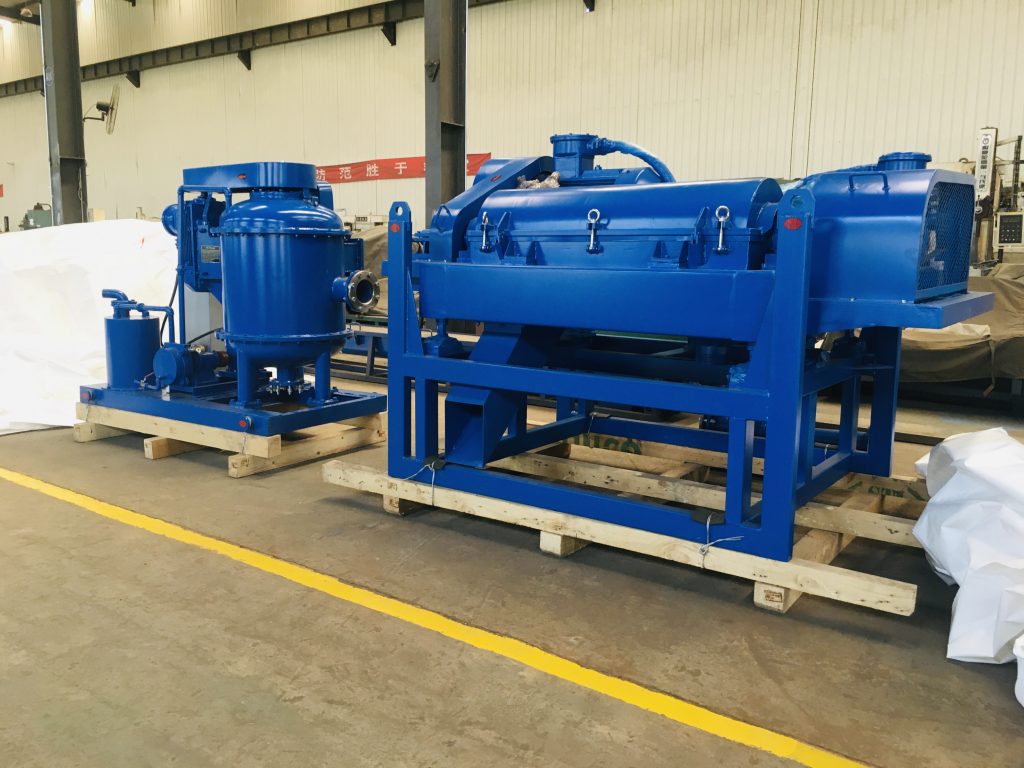In the oil and gas industry, solid control equipment plays a crucial role in the drilling process. One of the key components of solid control equipment is the centrifuge, which is essential for separating solids from drilling fluids. This process is vital for maintaining the integrity of the drilling fluid and ensuring the efficiency of the overall drilling operation.
Centrifuges are designed to utilize centrifugal force to separate the solid particles from the drilling fluid. As the drilling fluid is fed into the centrifuge, the high-speed rotation forces the heavier solids to settle at the bottom while the lighter fluid is directed out of the centrifuge for reuse in the drilling process. This separation process is essential for maintaining the properties of the drilling fluid, such as viscosity and density, which are critical for successful drilling operations.

The use of centrifuges in solid control equipment offers several benefits to drilling operations. Firstly, it helps to minimize the amount of solid particles in the drilling fluid, which in turn reduces the wear and tear on drilling equipment such as pumps and pipes. This ultimately leads to cost savings and increased efficiency in the drilling process.
Furthermore, the use of centrifuges in solid control equipment contributes to environmental protection by reducing the amount of waste generated from drilling operations. By effectively separating solids from the drilling fluid, the need for disposal of contaminated fluids is minimized, leading to a more sustainable and environmentally friendly drilling process.
In addition to their role in solid control equipment, centrifuges also play a crucial role in enhancing the overall safety of drilling operations. By maintaining the integrity of the drilling fluid, centrifuges help to prevent potential hazards such as blowouts and well instability, ultimately contributing to a safer working environment for drilling personnel.
In conclusion, the role of centrifuges in solid control equipment is indispensable in the oil and gas industry. Their ability to effectively separate solids from drilling fluids not only ensures the efficiency of drilling operations but also contributes to cost savings, environmental protection, and overall safety. As technology continues to advance, the role of centrifuges in solid control equipment will only become more critical in optimizing drilling processes.